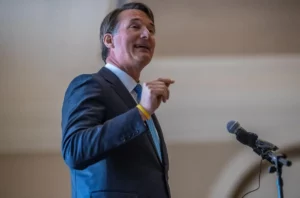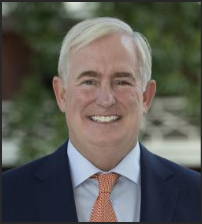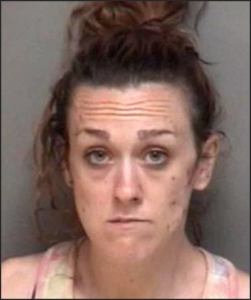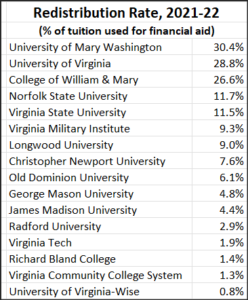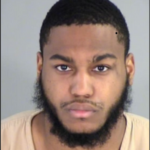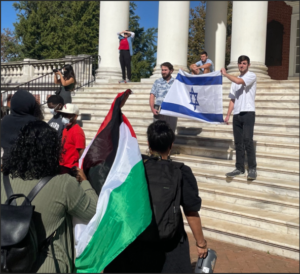 by James A. Bacon
by James A. Bacon
Matan Goldstein is a rarity at the University of Virginia — a Jewish student unafraid to openly defend Israel in its war with Hamas and oppose Students for Justice in Palestine (SJP), a pro-Palestinian group that praised Hamas’ October 7 terror attacks on Israeli citizens. The Israeli student has appeared on local talk radio and published an op-ed in the local newspaper. He wears a kippah, openly identifying himself as a Jew, and he was one of the two students who waved an Israeli flag on the steps of the Rotunda during an SJP rally.
Goldstein, who was drawn to UVa by its classics program, was surprised upon coming to Charlottesville by the prevalence of antisemitism and the impotent handwringing of the UVa administration in dealing with it. University officials have declined to criticize the eliminationist rhetoric of pro-Palestinian students and faculty. Instead, the University has created a religious diversity task force to investigate discrimination against Jews… and Muslims… and other religions. Two of the eleven task-force members had signed a faculty letter faulting Ryan for his failure to sufficiently acknowledge the suffering of the Palestinians.
Goldstein’s account is echoed by other members of UVa’s Jewish community contacted by The Jefferson Council, although he was the only one willing to speak on the record. A law school student spoke off the record, while parents, alumni, a professor and a rabbi conveyed the sentiments of many other Jewish students whom I was unable to contact for first-hand accounts. Jewish students are so reticent to speak publicly that the signatories to a letter in The Cavalier Daily identified themselves only as “a group of Jewish students.”
During his first-year orientation in September, Goldstein participated in a group discussion in which students told others about themselves. He mentioned that he was Israeli. A classmate, a student from Egypt, spoke up. He said he was angry at the Jewish state and the Israeli Defense Force. He thought Abdul Gamal Nasser, an Egyptian dictator who sought to destroy Israel in the Six Day War, was a hero. “He said we could never be friends.” Continue reading

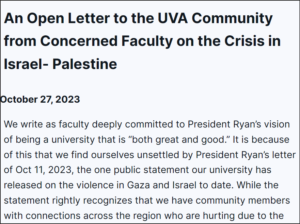

 by James A. Bacon
by James A. Bacon by James A. Bacon
by James A. Bacon
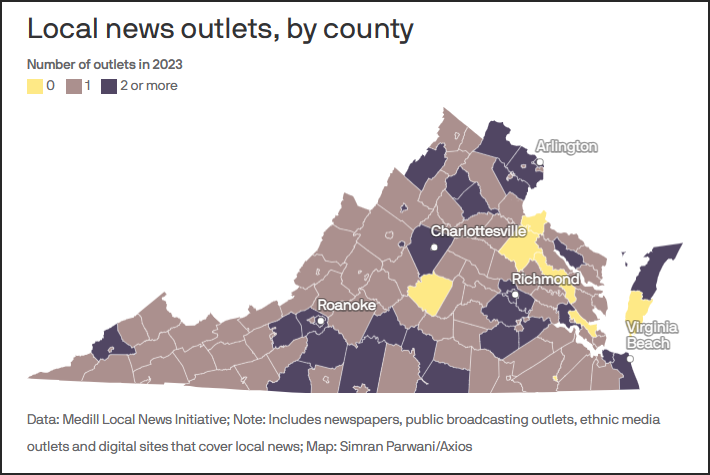
 by James A. Bacon
by James A. Bacon